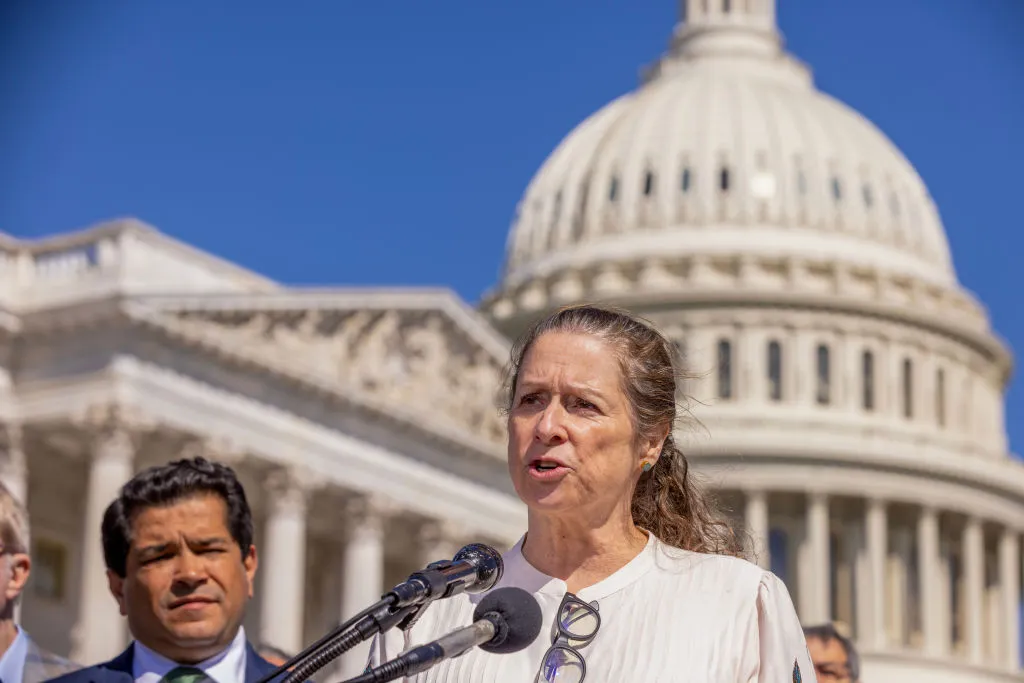As leaders from across the globe convene for this year’s G20 Summit in South Africa, people everywhere are looking to them to take concrete action and usher in a new era of solidarity, equality, and sustainability—the very themes of this year’s conference. If world leaders at the G20 Summit in Johannesburg wish to achieve these priorities, there is only one viable course of action for them to take: tax ultra-wealthy people like me.
[time-brightcove not-tgx=”true”]
The world is suffering from a dizzyingly long list of increasingly severe problems that stem from extreme and growing economic inequality: climate change, extreme poverty, food insecurity, disinformation, and threats to democratic freedoms. If we wish to address humanity’s most pressing issues, we must close unfair tax loopholes and establish financial structures that prevent wealth from concentrating at the very top of society.
This unpleasant truth, is why South African President Cyril Ramaphosa established a special committee of global inequality experts, led by world-renowned economist Joseph Stiglitz, and commissioned them to compose the first report on inequality for the G20 Summit. Among other things, the report found that 83% of all countries can be classified as having “high inequality” and that, between 2000 and 2024, the world’s richest 1% captured no less than 41% of all new wealth created.
I feel and see these trends acutely at home in the United States. We have the largest billionaire class in the world at the same time that 40% of our population—including no less than 49% of our children—are poor or low-income.
The dangers of extreme wealth inequality
Extreme wealth concentration is not just a concern for people at the bottom of our economic pyramid, but also for members of my class at the top, too. We all live on the same planet, and despite what some rabid billionaires may think, traveling to another planet is no solution to destroying this one. The wealthy are the ones fueling climate breakdown through their excessive consumption, harmful investment choices, and political power—and they are putting us all at risk.
I am also concerned about the threat that extreme wealth poses to our social fabric and to our democracies, where rich people are divorced from the rest of the society driving deep wedges between us and the rest of humanity. For the first time in my life, I have begun to worry about my own safety and wonder if my family will be safe. When violence becomes the only recourse poor and desperate people have to achieve political power and/or the means to support their families, we will only have ourselves to blame.
Tax policy solutions
There are many actions that G20 leaders can take to address this existential crisis. They can take up the key recommendation from Stiglitz’s committee and create a new “International Panel on Inequality,” similar to the International Panel on Climate Change, which would monitor trends on inequality and inform national and international policymakers on the best ways to tackle it. But even without that panel, we already know that taxing the super-rich is one of—if not the single most—effective way to reduce extreme wealth concentration.
The tax policy solutions to reduce inequality already exist and, thankfully, are countless in number. At the international level, economist Gabriel Zucman’s proposal to institute a global minimum tax on billionaires was devised at the behest of the previous Brazilian G20 Presidency. This would certainly help end the “race to the bottom” with regard to tax avoidance by the world’s wealthiest individuals, who can move their capital to low-tax jurisdictions with stunning ease. At the national level, among other things, lawmakers can institute and reform estate and inheritance taxes; raise tax rates on capital income; tax unrealized capital gains; close regressive loopholes; and institute net wealth taxes.
Polling reveals that G20 leaders have strong and widespread support from their constituents for enacting these kinds of measures. Various surveys of the general public in G20 countries over the years have found overwhelming approval for increasing taxes on the rich. There is also clear support for such action among my wealthy peers. I am part of the Patriotic Millionaires, an organization which sponsored surveys of millionaires in G20 countries in 2023 and 2024 and found the majority of them to be in favor of higher taxes on wealth. We also recently sponsored a new poll specifically of South African millionaires. In the end, over two-thirds backed a 2% wealth tax to fund social investments in addition to international standard-setting on taxing the super-rich.
The tax policy solutions to reduce extreme wealth concentration at the top are there. The support from the public, including millionaires themselves, should inspire G20 leaders to find the political will to get to work on taxing the rich. And it’s imperative they find it sooner rather than later, as there is every indication that the next G20 Presidency under the United States will reverse the precious progress that’s been made on the international tax front.
I want to show solidarity as a person of wealth in the South African G20 Presidency’s push to create more equal nations and a healthier, more sustainable planet. I desperately want to do my part to tackle humanity’s most pressing crisis of inequality. But I can only do this if G20 leaders take decisive action to raise my taxes, and I hope they do so before it’s too late.
The post G20 Leaders Need to Start Taxing Wealthy People Like Me appeared first on TIME.




